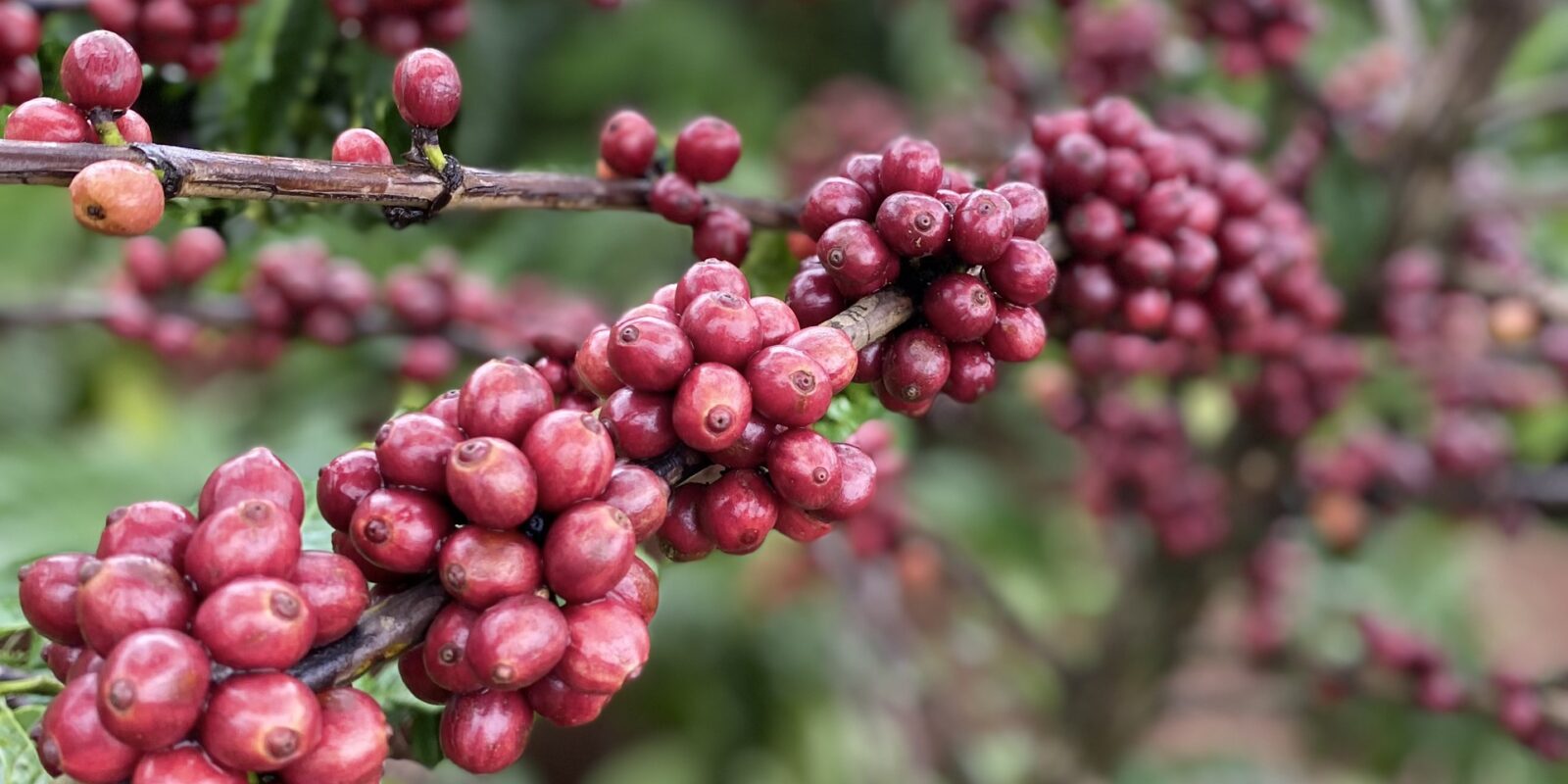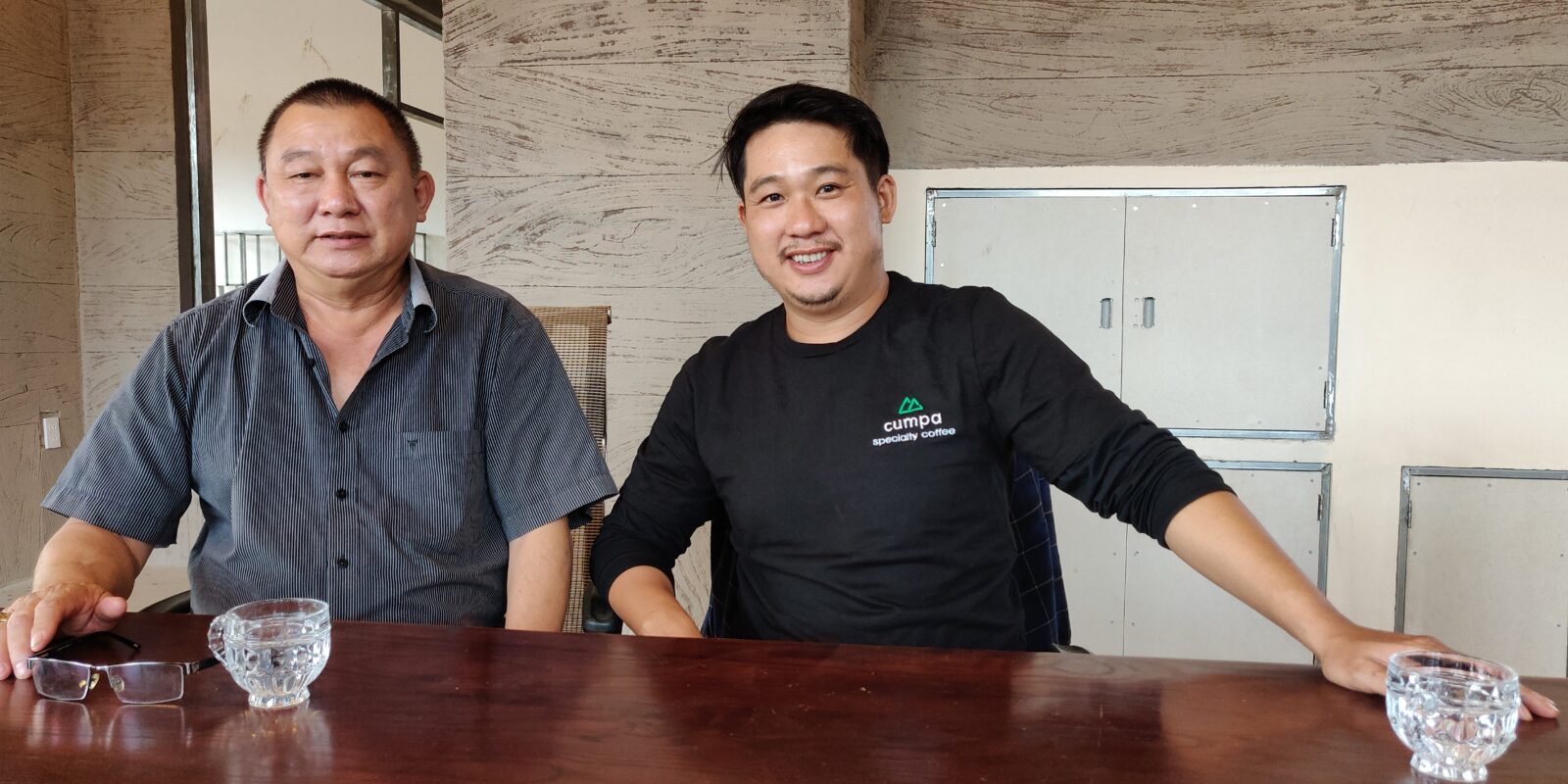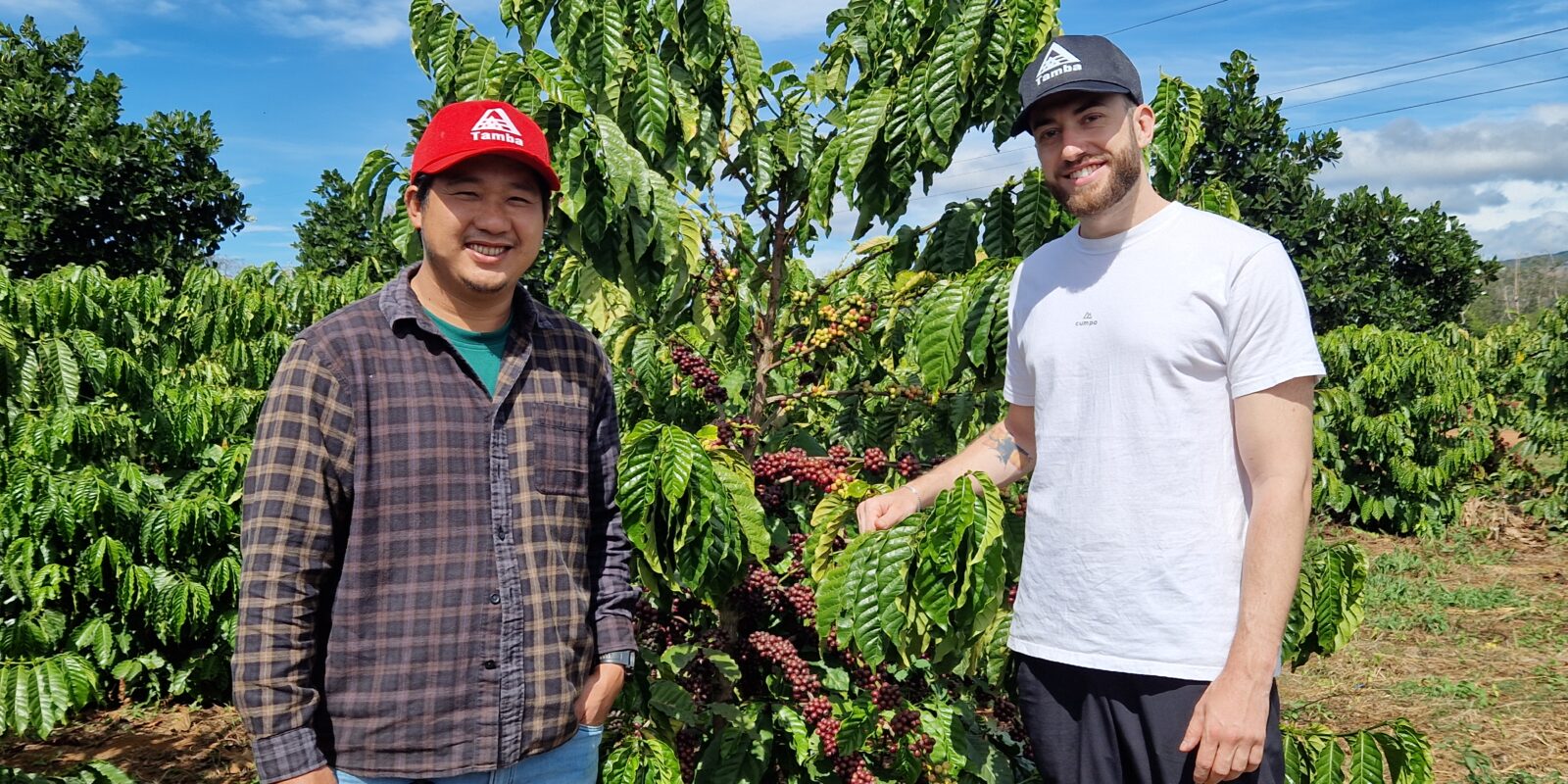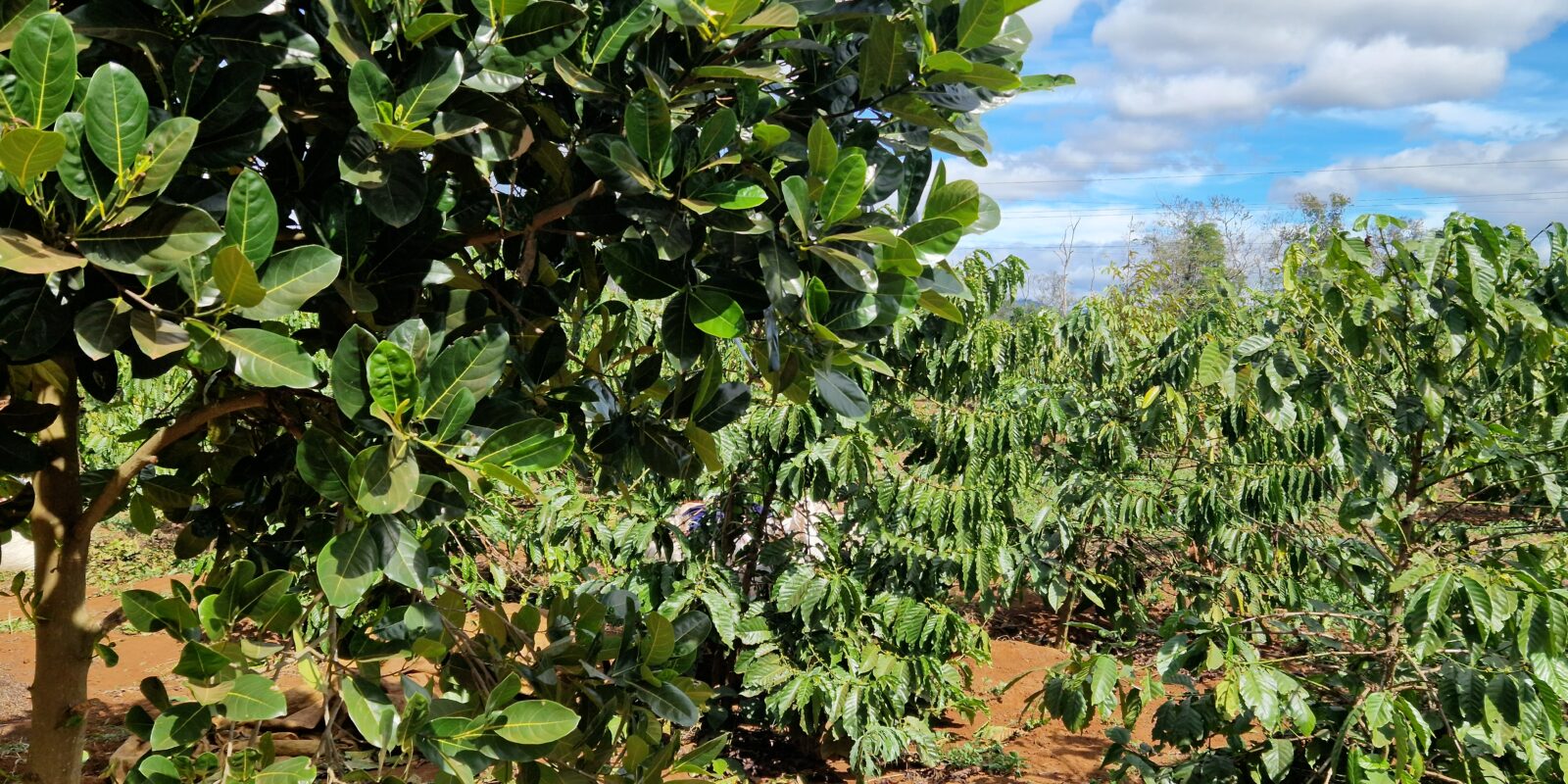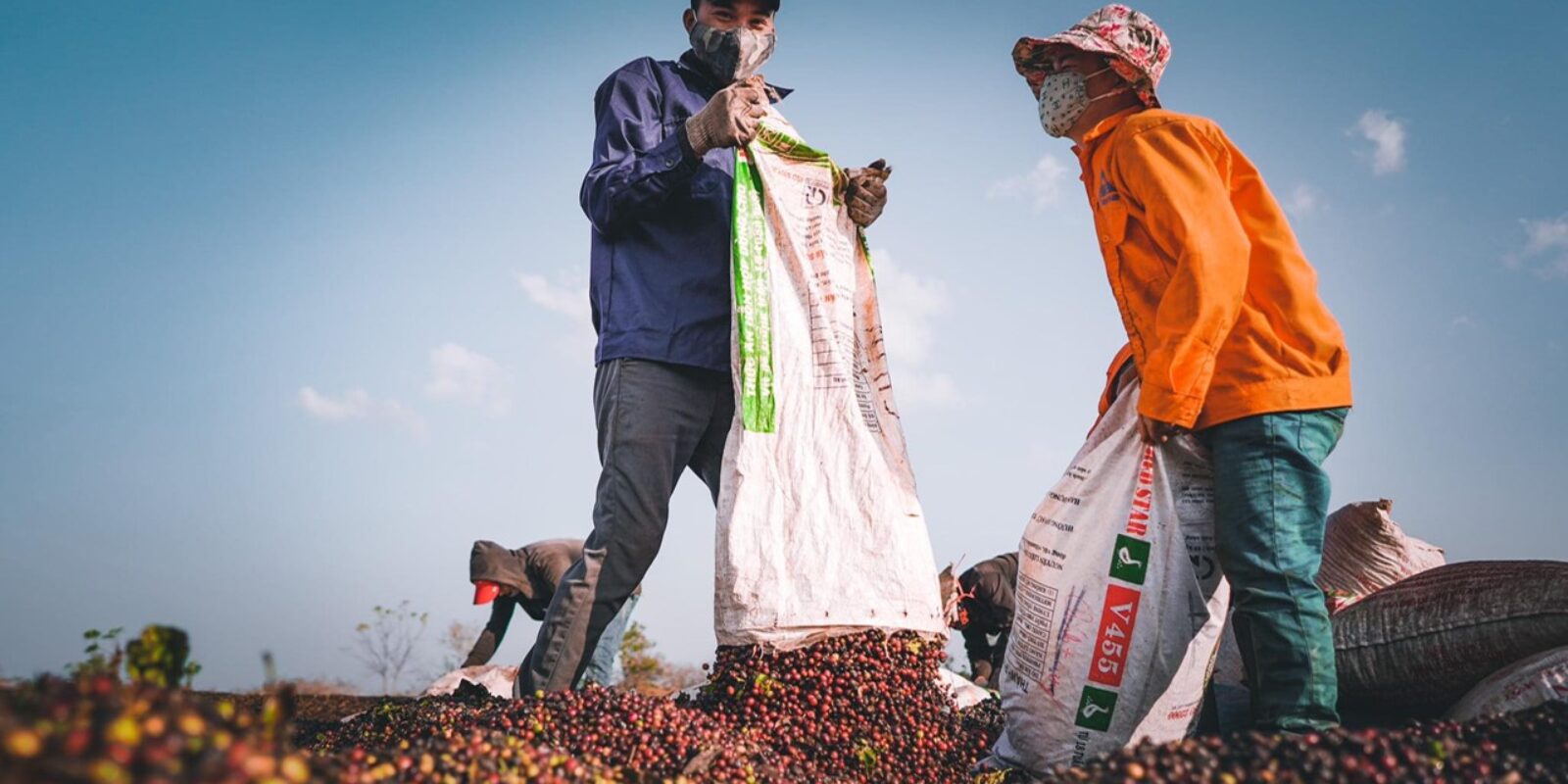GIA LAI
Tamba Coffee
About Tamba Coffee
Our latest partner in Vietnam is Tamba Coffee. Mr. Quang’s processing station is located in the central highlands of Vietnam, more precisely in the province of Gia Lai. The production facility was founded by Mr. Quang’s father over 30 years ago. At Tamba, the entire production is in our own hands. This allows the coffee production to be planned precisely and executed systematically, which not only enables the excellent coffee quality, but also offers great potential for growth.
True Single Origin Robusta
The Quang family is very close to the Jarai ethnic tribe and employs many people in coffee cultivation. Mr. Quang Senior had started teaching math and physics for the church in Jarai villages when he was 14 years old, and also helped the children learn Vietnamese. In the process, he also learned their tribal language and became close friends with the Jarai. Even today, he is closely connected to the tribe and often goes to the village after work, as he says he likes the food and music there better. His son tells us that Mr. Quang Senior today speaks 20 different tribal languages of various ethnic minorities of the Vietnamese highlands.
The next generation
Mr. Quang Junior now brings even more business acumen and the sustainability mindset to the family business. The farm has already been awarded Rainforest Alliance certification and is currently working on organic certification. During our visit, Mr. Quang proudly shows us the wastewater treatment plant used to treat wastewater from coffee production. The farming practices are organic anyway and he does not use chemical pesticides and herbicides on the farm. All that’s missing now is the certificate.
Tamba Coffee
The farms cover an area of 200 hectares, where besides coffee also fruit trees are planted. They provide shade and promote biodiversity. While harvesting coffee together, two ladies of the Jarai tell us about the wild bees that help themselves to the nectar of the coffee flowers during the flowering season. Many of the Jarai produce coffee blossom honey in their villages and sell it at the nearby market. It’s a delicious, somewhat tart honey that we also find in the flavor profile of the coffee.
The Jarai today
During our visit, a new building was being built that will serve as a training center in the future. Mr. Quang dreams of being able to receive international guests and also to train young coffee enthusiasts from the region. Many of the Jarai are still simple farmers and harvest workers who come from poor backgrounds and for the most part have poor access to education. Here, however, they will have the chance to learn more about coffee processing and organic fertilization methods.
Mr. Quang sees a long-term need for the Jarai people to be able to manage their farms more sustainably and autonomously. He is very concerned about the future of coffee farming and how the next generation of producers can carry on his idea of sustainability.
We are pleased to be working with Tamba to find a solution for sustainable coffee growing, to better understand the Jarai ethnic group, and to bring these great Robustas to the European market.
